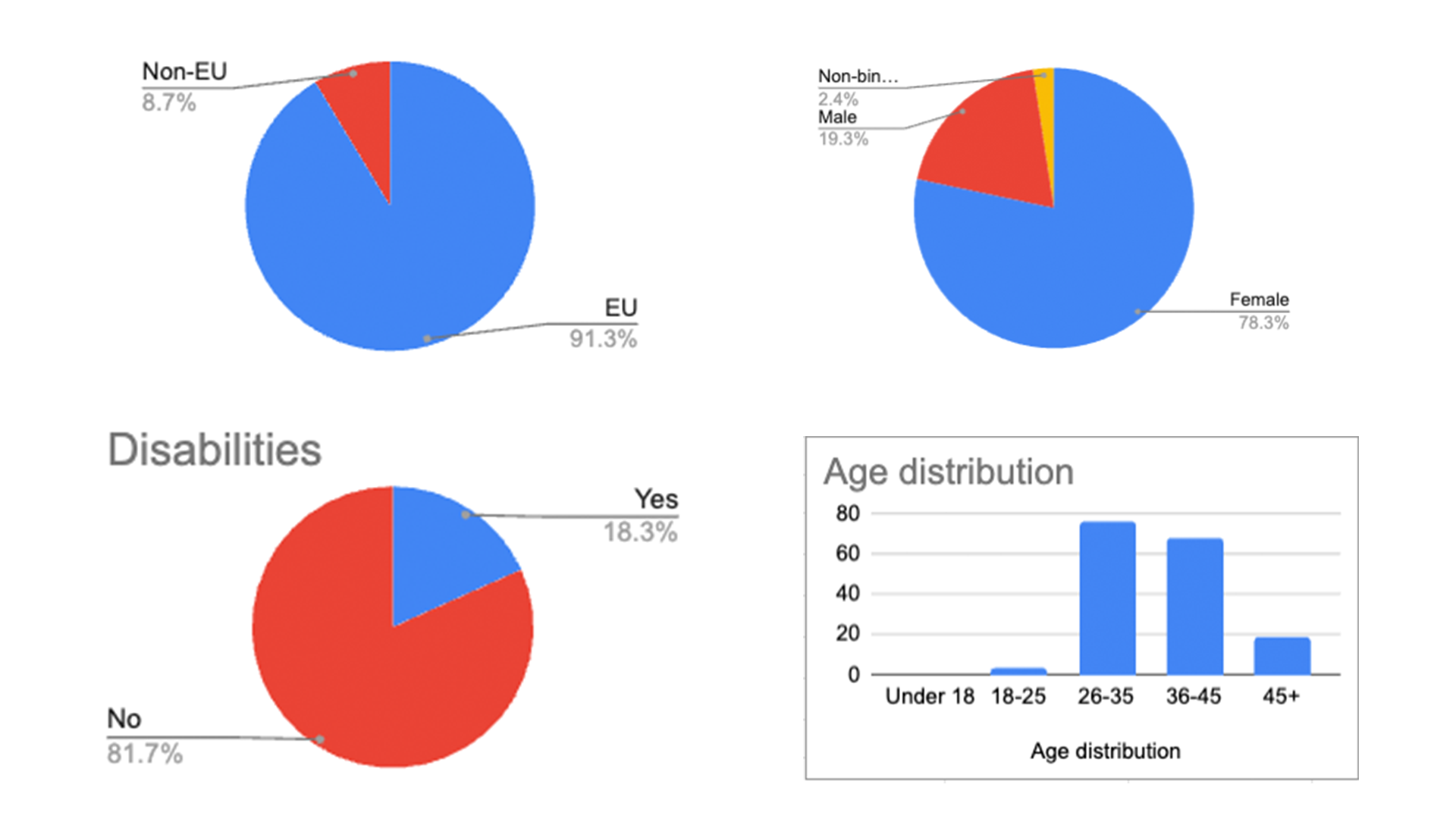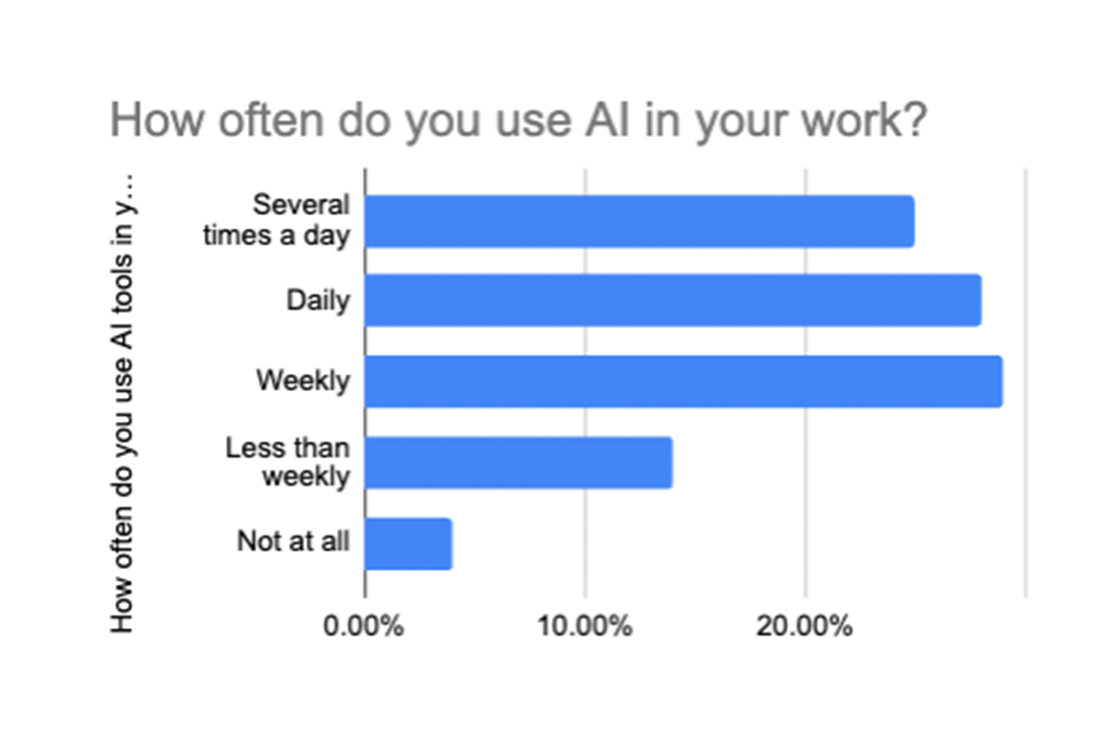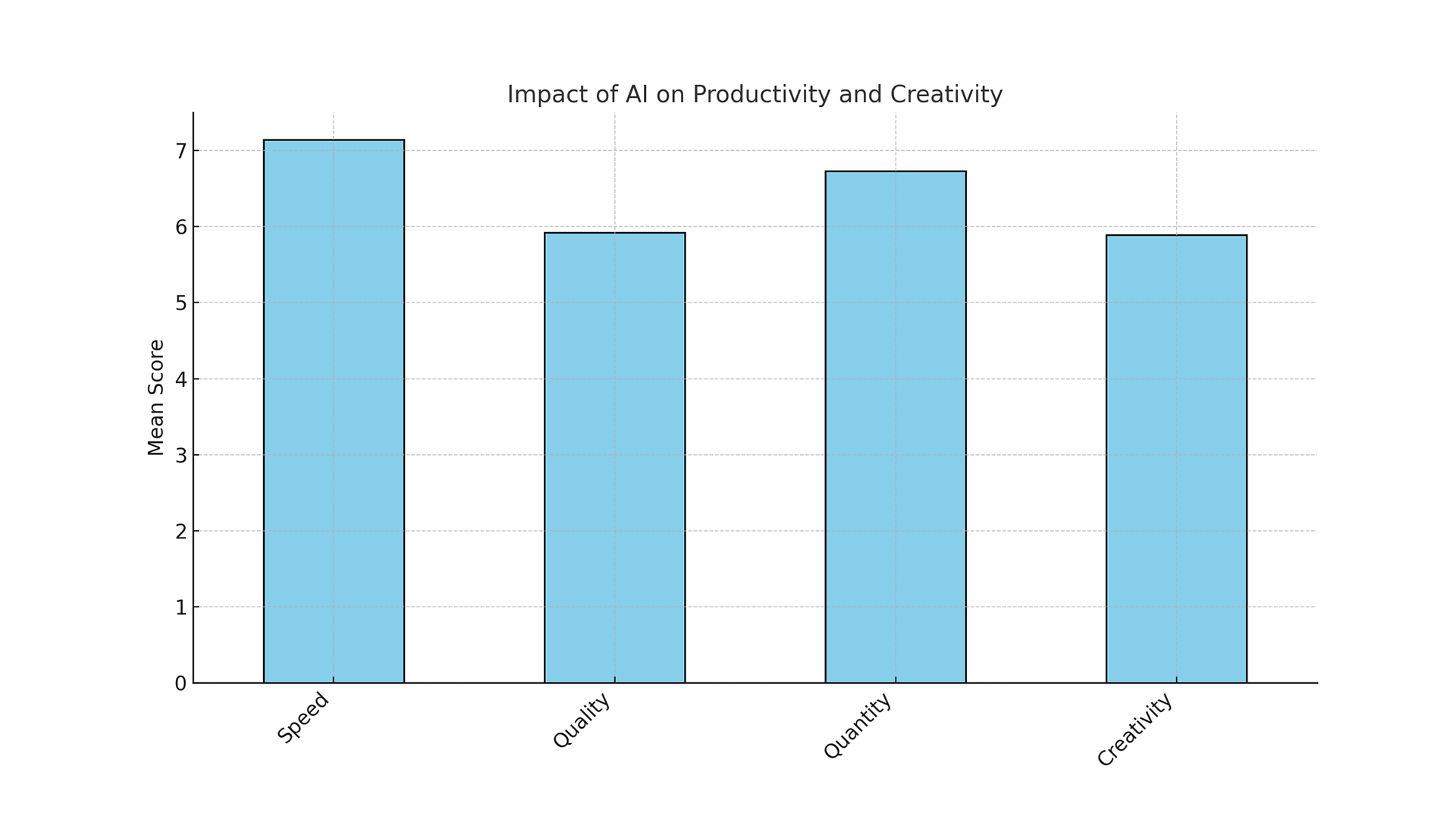AI Empower Research: Faster, More, Better? How AI is Reshaping Work Expectations
Imagine walking into your office one morning to find that your tasks have doubled overnight—but so has your ability to complete them. AI is not just changing the way we work; it is reshaping expectations, redefining productivity, and even altering how we perceive our own professional worth.
This article is based on findings from the FFG-funded research project 'AI Empower Lab' by WOMENTOR, which investigates the real-world impact of AI on the future of work and especially on different target groups, that always deserve our special attention: FLINTA, but also a special focus was put on the creative and knowledge worker industry. Through a quantitative survey, qualitative interviews, and focus groups, we explored during 12 months how AI influences productivity, creativity, job satisfaction, and workplace pressures and especially if there are specific differences in terms of impact or usage among Genders.
Demographics of respondents
Our survey sample (n=166) consisted predominantly of female respondents (76%), with 19,3% male and 2,4% non-binary participants. 18% of the respondents reported to be disabled. Furthermore, the majority of respondents were aged between 26 and 45 years old. Geographically, over 90% of respondents were from the European Union.
AI Adoption in the Workplace
Our survey results show that AI is widely integrated into professional workflows: 83% of our respondents use AI tools at least weekly. However, AI adoption is not uniform, with varying levels of proficiency and concerns about its limitations.
How AI Affects Productivity
One of the key promises of AI is enhanced efficiency and productivity. Our data confirms that AI increases work speed and quantity but does not significantly improve quality or creativity.
Speed: One of the most immediate benefits of AI is the acceleration of task completion. Whether it’s drafting reports, analyzing data, or generating ideas, AI helps professionals work faster, reducing the time spent on repetitive or time-consuming processes. Respondents rated the increase of speed with help of AI tools with an average of 7 on a scale from 1-9.
Quantity: Many respondents in our research noted that AI allows them to produce significantly more output. From content creation to design iterations, AI-powered tools help scale work efficiently, increasing productivity without necessarily increasing effort.
Quality & Creativity: However, while AI can enhance efficiency, it also raises concerns about the moderate quality of AI-generated work. Many professionals report that while AI helps with structure and ideation, the final output often lacks originality or depth. Over-reliance on AI can lead to mediocrity, where content feels generic rather than truly innovative. The challenge is striking the right balance—using AI as an enhancement tool rather than a replacement for human creativity and expertise.
As AI becomes a staple in creative and knowledge work, the question remains: how can we harness its power while ensuring that speed and quantity don’t come at the cost of originality and excellence?
"... so that we don't achieve great or awesome work, because an okayish output is okay, is good enough." (Self-employed AI trainer, former Designer)
In conclusion, as with many technological advancements the question of productivity is highly interesting: Do new technologies enable us to do our work more efficiently, or do we just produce even more outputs at a higher speed, because with the new technology, we are able to, setting new expectations on workers?
On one hand, I am now faster, which is also a problem, because my clients, they know about it, and timings get more ridiculous. So this is not really helpful. It's just speeding the daily business up. (Self-employed Senior Art Director)
AI & Workplace Satisfaction
Respondents generally feel empowered by AI. Many use AI to automate repetitive tasks, allowing them to focus on more enjoyable and meaningful work. This aligns with the positive impact AI can have on job satisfaction when used strategically.
At the same time, AI adoption comes with increased workplace pressures:
Higher expectations to produce more work faster
Increased pressure for high-quality outputs
Economic Impact: AI & Salaries
Most respondents reported no change in their income due to AI. However, 13% stated that they now earn a little bit more.
There is an interesting dimension of valorisation that society seem to give to technology, which can leave room for the conclusion that people in formerly rather lower-paid industries such as the creative, are now able to position themselves in so-called ‘STEM’ fields and potentially secure also higher salaries. One of our interviews highlights an intriguing shift in perceived professional value:
"What was the big change regarding how people treat me. Because before, I was just another graphic designer or illustrator, and people didn't know what they should pay me for. And suddenly, for some reason, just because I read books and talk about AI or have a fundamental knowledge, people treat me differently. They seem much more interested in my work now. They take me seriously since I started working with tech."
This suggests that AI adoption enhances professional credibility, particularly in creative fields, where technical skills can help professionals rebrand themselves into higher-paid roles.
Conclusion & Recommendations
AI is transforming the way we work, offering increased speed, efficiency, and even new career opportunities. However, it also comes with new pressures, shifting expectations in workplace performance and job roles.
Long-Term Effects on Job Roles
While AI adoption is increasing, its long-term effects on job roles remain uncertain. Will it lead to job displacement, or will it shift workers into more strategic and creative positions? Further research is needed to assess AI’s impact on job security and evolving career paths.
The Need for AI Literacy & Skill Development
Our findings suggest that professionals who actively engage with AI tools and upskill themselves see increased opportunities. However, many workers lack the necessary AI literacy to fully leverage these tools. Upskilling initiatives and AI education tailored to specific industries will be crucial in ensuring fair access and use.
Workplace Expectations & AI Governance
Companies and freelancers alike must carefully navigate the balance between increased efficiency and sustainable workloads. As AI pushes the limits of productivity, it is important to ensure that human well-being remains a priority and that businesses adopt responsible AI policies to avoid burnout and unrealistic performance expectations.
The Role of AI in Shaping Industry Power Structures
One emerging insight is the shift in how AI expertise changes perceived professional value—particularly for creatives who historically struggled with fair compensation. AI can serve as a tool for professional repositioning, but we must also address who has access to these opportunities and ensure inclusive participation in AI-driven industries.





